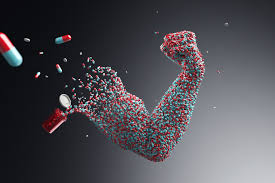Legal regulation of sports activities and aspects of doping
Introduction
Sports activities are an important part of social life, and their legal regulation is aimed at ensuring fair play, protecting the rights of athletes, and preventing and combating doping. The legal regulation of sports covers various aspects, including the organization of sports competitions, the rights and obligations of athletes and coaches, financial issues, and the fight against doping.
Legal regulation of sports activities
International and national organizations
International and national sports organizations play a key role in the regulation of sports activities. The main international organizations include:
- International Olympic Committee (IOC): the main body that coordinates the Olympic movement.
- International sports federations: organizations that govern certain sports at the international level (e.g., FIFA for football, IAAF for athletics).
- World Anti-Doping Agency (WADA): a body that develops and implements anti-doping policies.
At the national level, the main organizations include:
- National Olympic Committees: organizations that manage the Olympic movement in their countries.
- National sports federations: organizations that manage sports at the national level.
- National Anti-Doping Agencies: organizations that implement anti-doping policies at the national level.
Legislation
Legislation regulating sports activities may include:
- Laws on sports: general laws governing the organization and functioning of sports organizations, rights and obligations of athletes, and financing of sports.
- Anti-doping laws: special laws regulating the fight against doping in sports.
Contracts and agreements
Sports organizations enter into various contracts and agreements, including:
- Sponsorship agreements: contracts between sports organizations and sponsors.
- Contracts with athletes and coaches: agreements that define working conditions, remuneration and other aspects of cooperation.
Aspects of doping
Definition of doping
Doping in sports means the use of prohibited substances or methods by athletes to improve their performance. The list of prohibited substances and methods is determined by the World Anti-Doping Agency (WADA) and is regularly updated.You may be interested in the following articles: lawyer consultation, legal advice, document analysis, legal analysis of the situation, written consultation, verification of documents by a lawyer, lawyers documents, online lawyer assistance, online lawyer, legal opinion, legal opinion of a lawyer, lawyer online.
Anti-doping rules
Anti-doping rules include:
- Prohibition of Use of Prohibited Substances: Athletes may not use prohibited substances or prohibited methods.
- Doping testing: regular testing of athletes for the presence of prohibited substances.
- Liability for Violations: Sanctions for violations of anti-doping rules, including disqualification, forfeiture of medals and prizes.
Testing procedures
Doping testing procedures include:
- Sampling: collection of urine or blood for analysis.
- Sample analysis: laboratory analysis of selected samples to detect prohibited substances.
- Sample storage: storage of samples for possible reanalysis.

































